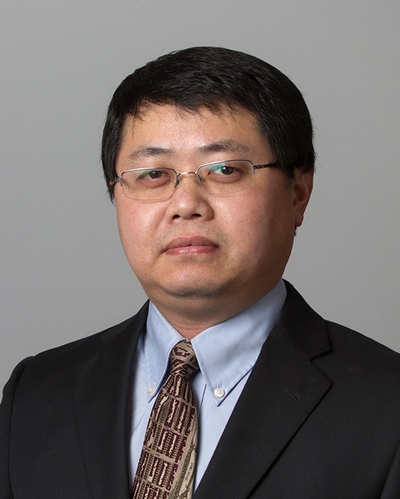
Research Topics
Dr. Jianxin Shi is interested in both developing quantitative methods and leading substantive projects to advance the knowledge about cancer genomics and potential translational applications. His research focuses on three areas: cancer genetic epidemiology, cancer genomics, and microbiome epidemiology.
For cancer genetic epidemiology, Dr. Shi is interested in identifying genetic variants associated with lung cancer, melanoma, and pancreatic cancer, and in developing polygenic risk prediction models for risk stratification. His current methodological research focuses on improving polygenic risk modeling by integrating functional data and pleiotropy information.
For cancer genomics, Dr. Shi is studying the landscape of lung cancer and chordoma and is developing methods for analyzing driver genes, mutual exclusivity, and intratumoral heterogeneity.
For microbiome epidemiology, Dr. Shi is collaborating extensively to investigate the role of gut and oral microbiome in cancer etiology and is developing statistical and computational methods to support large-scale studies.
Biography
Dr. Shi received a Ph.D. in statistics from Stanford University in 2006, under the supervision of Dr. David Siegmund. He then spent two years as a postdoctoral research fellow and one year as research scientist in the Department of Psychiatric and Behavioral Science at Stanford University, working on genome-wide association studies of breast cancer, schizophrenia, and recurrent depression. Dr. Shi joined the Biostatistics Branch of DCEG at NCI as a tenure-track investigator in 2009, and was appointed senior investigator in 2016.
Selected Publications
- Shi J, Li P. An integrative segmentation method for detecting germline copy number variations in SNP arrays. Genet Epidemiol. 2012;36(4):373-83.
- Shi J, Chatterjee N, Rotunno M, Wang Y, Pesatori AC, Consonni D, Li P, Wheeler W, Broderick P, Henrion M, Eisen T, Wang Z, Chen W, Dong Q, Albanes D, Thun M, Spitz MR, Bertazzi PA, Caporaso NE, Chanock SJ, Amos CI, Houlston RS, Landi MT. Inherited variation at chromosome 12p13.33, including RAD52, influences the risk of squamous cell lung carcinoma. Cancer Discov. 2012;2(2):131-9.
- Shi J, Marconett CN, Duan J, Hyland PL, Li P, Wang Z, Wheeler W, Zhou B, Campan M, Lee DS, Huang J, Zhou W, Triche T, Amundadottir L, Warner A, Hutchinson A, Chen PH, Chung BS, Pesatori AC, Consonni D, Bertazzi PA, Bergen AW, Freedman M, Siegmund KD, Berman BP, Borok Z, Chatterjee N, Tucker MA, Caporaso NE, Chanock SJ, Laird-Offringa IA, Landi MT. Characterizing the genetic basis of methylome diversity in histologically normal human lung tissue. Nat Commun. 2014;5:3365.
- Shi J, Yang XR, Ballew B, Rotunno M, Calista D, Fargnoli MC, Ghiorzo P, Bressac-de Paillerets B, Nagore E, Avril MF, Caporaso NE, McMaster ML, Cullen M, Wang Z, Zhang X, NCI DCEG Cancer Sequencing Working Group., NCI DCEG Cancer Genomics Research Laboratory., French Familial Melanoma Study Group., Bruno W, Pastorino L, Queirolo P, Banuls-Roca J, Garcia-Casado Z, Vaysse A, Mohamdi H, Riazalhosseini Y, Foglio M, Jouenne F, Hua X, Hyland PL, Yin J, Vallabhaneni H, Chai W, Minghetti P, Pellegrini C, Ravichandran S, Eggermont A, Lathrop M, Peris K, Scarra GB, Landi G, Savage SA, Sampson JN, He J, Yeager M, Goldin LR, Demenais F, Chanock SJ, Tucker MA, Goldstein AM, Liu Y, Landi MT. Rare missense variants in POT1 predispose to familial cutaneous malignant melanoma. Nat Genet. 2014;46(5):482-6.
- Shi J, Yang XR, Caporaso NE, Landi MT, Li P. VTET: a variable threshold exact test for identifying disease-associated copy number variations enriched in short genomic regions. Front Genet. 2014;5:53.
Related Scientific Focus Areas
This page was last updated on Thursday, April 4, 2024


